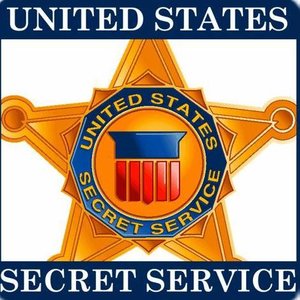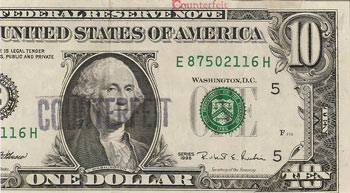VIRGINIA
 A federal judge sentenced the leader of an international counterfeit currency ring who was responsible for $70 million in counterfeit to 15 years in prison, officials announced today.
A federal judge sentenced the leader of an international counterfeit currency ring who was responsible for $70 million in counterfeit to 15 years in prison, officials announced today.
Itzhak Loz, 48, of Rishon Le Zion, Israel, the leader of the international counterfeit was sentenced Friday for leading a RICO conspiracy involving multiple acts of counterfeiting and money structuring.
Loz was also ordered to forfeit $20 million and specific assets including a warehouse in New Jersey where the counterfeit currency was most recently printed.
“Loz was the leader of a conspiracy that printed, distributed and passed over $70 million high-quality counterfeit $50 and $100 bills,” said U.S Attorney Dana J. Boente of the Eastern District of Virginia. “This international criminal enterprise operated undetected for many years in Israel and the United States and relied upon a close-knit and loyal network of distributors bound by family ties, loyalty and greed. I want to commend the Secret Service and its law enforcement partners for aggressively investigating this conspiracy and supporting the prosecution of these 13 defendants.”
Loz, along with 12 co-conspirators, were indicted by a federal grand jury on Aug. 7, 2014.
According to court documents, Loz was the leader of the racketeering enterprise that manufactured and distributed more than $70 million in counterfeit U.S. currency between 2004 and 2014.
The enterprise was financed, in part, by brothers Arkadiy Bangiyev, 38, of Rego Park, New York, and Eduard Bangiyev, 40, of Forest Hills, New York, who operated a retail jewelry store in Long Island and then a gold refinery business in Manhattan’s diamond district, court records indicate.
Loz, along with the Bangiyev brothers and co-conspirator Ronen Fakiro, 47, also of Rishon Le Zion, manufactured the counterfeit currency on offset and lithography printing machinery in Israel and the United States and produced extremely high-quality notes which replicated the many security features of genuine currency, according to authorities.
At the height of its operations, officials said the enterprise smuggled $3 million worth of counterfeit currency into the United States every three months.
The counterfeit was concealed inside shipping containers containing machinery. Once the counterfeit was in the United States, the enterprise relied upon a network of distributors who obtained the counterfeit from the Bangiyev brothers.
Authorities said the ultimate users of the counterfeit passed the notes at locations up and down the east coast of the United States.
In 2014, Loz and Ronen Fakiro purchased a warehouse in Cherry Hill, New Jersey, to manufacture counterfeit $100 notes and recruited a married couple from Israel, Boaz and Ofra Borohov, 45 and 46, respectively, to assist them in the production of the notes.
Loz attempted to recreate and produce the security features of the most recently issued $100 bill but was unable to do so.
Instead, beginning in April 2014, the enterprise printed $5.3 million in counterfeit $100 bills.
On May 28, 2014, the Secret Service executed a search warrant at the warehouse and essentially caught the Borohov’s “red handed” as they were operating heat press machines used to manufacture counterfeit currency.
That same day, the Secret Service also seized approximately $2.56 million in counterfeit $100 bills from Loz’s New York storage unit and other assets, including over $200,000 in genuine U.S. currency, along with jewelry, watches, diamonds, bank accounts, luxury cars and real estate.
All 13 defendants named in the original indictment have plead guilty. Nine defendants have been sentenced, while the remaining four are awaiting sentencing.

